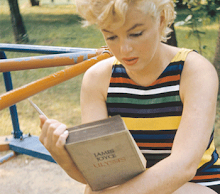articulate
 I recently went to see my aunt and uncle for the day. My grandmother is staying with them, and another uncle had recently flown in from
I recently went to see my aunt and uncle for the day. My grandmother is staying with them, and another uncle had recently flown in from Articulate is a board game, where, rather like Pictionary, things are categorised (people, place, action etc), and it is your job to describe them, without actually saying the word. The more items you successfully describe before the sand in the wobbly plastic egg-timer runs out, the quicker your progress around the board. So far so good.
We drew lots. My younger sister, my aunt and her husband were all in the same team. I was in a team with my uncle from
Well, kind of. But although I can tell my grandmother I’m okay, that I love her, and she can tell me if she needs anything, we cannot have a conversation with each other without somebody continually translating because we cannot speak the same language. I can tell my grandmother I am happy, but if I tell her why, somebody else must be there to translate for me, inevitably one of the many matriarchs in my life, who I suspect may sometimes add their own spin on my responses, judging from the sideways looks and spontaneous outbursts of laughter they often exchange. Of course, I will never know, because my mother never taught me, or my sister, her mother tongue.
My visiting uncle from Australia basically speaks the same language as my mum, aunt and grandma. Ish. But his is a purer version, as my mum’s family are third generation immigrants in their home country, and therefore they speak a bizarre mixture of languages that is perfectly understood in their country, but less so in my uncle’s. This means that even he does not speak the same language as the rest of my family, including his wife, yet another of my many aunts.
This makes playing a game based entirely on language, where the only available translator, my aunt, is on the opposing team, slightly frustrating. A quarter of the way around the board, after my grandmother had escaped from the table without a word’s notice, we universally admitted defeat.
My aunt, living in


1 Comments:
I was falling asleep doing the washing up with this on in the background so I don't have anything interesting to say about it, but you might: http://www.bbc.co.uk/radio3/theessay/pip/r483l/
It pointed out a few things I had always thought about being bilingual, in a more concrete way than I could (even having listened to the programme).
Tea/wine soon? xxx
Post a Comment
Subscribe to Post Comments [Atom]
<< Home